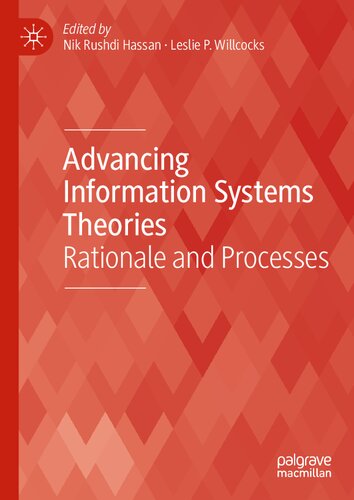

Most ebook files are in PDF format, so you can easily read them using various software such as Foxit Reader or directly on the Google Chrome browser.
Some ebook files are released by publishers in other formats such as .awz, .mobi, .epub, .fb2, etc. You may need to install specific software to read these formats on mobile/PC, such as Calibre.
Please read the tutorial at this link: https://ebookbell.com/faq
We offer FREE conversion to the popular formats you request; however, this may take some time. Therefore, right after payment, please email us, and we will try to provide the service as quickly as possible.
For some exceptional file formats or broken links (if any), please refrain from opening any disputes. Instead, email us first, and we will try to assist within a maximum of 6 hours.
EbookBell Team

5.0
18 reviewsThe information systems (IS) field represents a multidisciplinary area that links the rapidly changing technology of information (or communications and information technology, ICT) to the business and social environment. Despite the potential that the IS field has to develop its own native theories to address current issues involving ICT it has consistently borrowed theories from its “reference disciplines,” often uncritically, to legitimize its research. This volume is the first of a series intended to advance IS research beyond this form of borrowed legitimization and derivative research towards fresh and original research that naturally comes from its own theories. It is inconceivable for a field so relevant to the era of the hyper-connected society, disruptive technologies, big data, social media, "fake news" and the weaponization of information to not be brimming with its own theories.
The first step in reaching the goal of developing native IS theories is to reach an agreement on the need for theory (its rationale) and its role as the most distinctive product of human intellectual activity. This volume addresses what theories are, why bother with theories and the process of theorizing itself because the process of developing theories cannot be divorced from the product of that process. It will lay out a research agenda for decades to come and will be invaluable reading for any academic in the IS field and related disciplines concerned with information, systems, technology and their management.